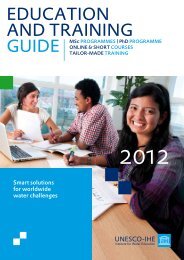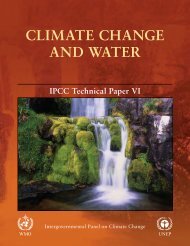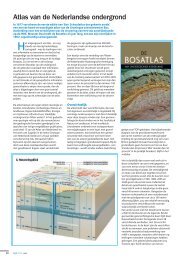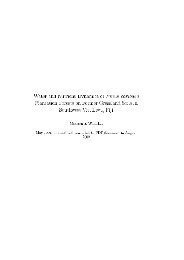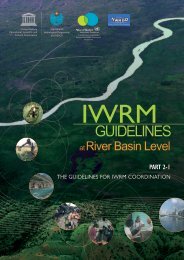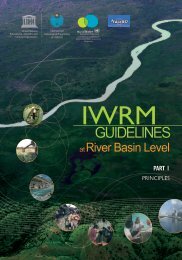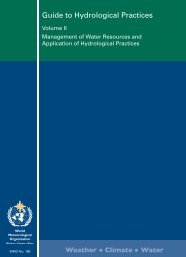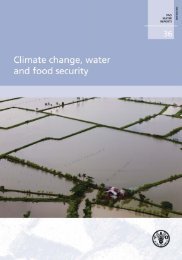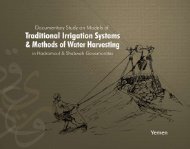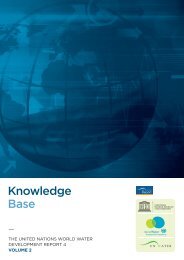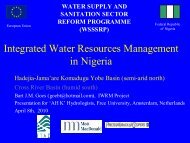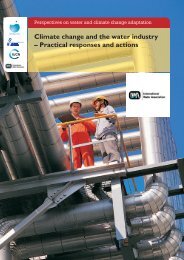Non-renewable groundwater resources: a ... - unesdoc - Unesco
Non-renewable groundwater resources: a ... - unesdoc - Unesco
Non-renewable groundwater resources: a ... - unesdoc - Unesco
- No tags were found...
You also want an ePaper? Increase the reach of your titles
YUMPU automatically turns print PDFs into web optimized ePapers that Google loves.
NON-RENEWABLE GROUNDWATER RESOURCESAdditional management actionsfor sustainable <strong>groundwater</strong> <strong>resources</strong>To secure more effective water management and national planning, and a higher level of sustainabilityand continuity of development and progress of the country, in 2002 all water agenciesand authorities were placed under the Minister of Water (MW). The specific objectives of thenew Ministry as stated in the Royal Decree No 125 on 25/4/1422 (16 July 2001) are to:● supervise the management, monitoring and organization of the water sector and its facilities,● carry out all related studies needed to assess the country’s water supplies and storagevolumes,● prepare a comprehensive water plan defining policies for water resource development,protection and conservation,● prepare a national program to expand the drinking water and wastewater networks inall urban areas of the Kingdom,● suggest the required organizations needed for water <strong>resources</strong> protection,● study and propose new water tariffs for all users of water,● determine how to improve the performance of wastewater collection systems.● develop mechanisms, frameworks and implementation strategies for private sector involvementin water sector investments, operation and maintenance.In addition to those responsibilities of the MW listed above, measures are also needed to:● reduce the irrigation water consumption to increase the long-term productivity and qualityof the aquifers,● control leakage and minimize water losses from water supply networks,● augment <strong>groundwater</strong> <strong>resources</strong> from non-conventional <strong>resources</strong> such as desalination,wastewater reuse, and● implement artificial aquifer recharge.In September 2003, responsibility for the electricity sector was added to the mission of the MWand its name was changed to the Ministry of Water and Electricity. This decision was made toachieve better coordination between the water and power sectors as most of seawater desalinationplants produce both water and electricity. The Ministry has adopted an Integrated WaterResources Management tools to implement its short term and long-term water strategies, whichare presently under development. This approach is aimed at achieving the coordinated developmentand management of water, land and related <strong>resources</strong> in ways that will maximize theresultant economic and social welfare in an equitable manner without compromising the sustainabilityof of valuable <strong>groundwater</strong> <strong>resources</strong> and vital ecosystems.Conclusions66Saudi Arabia is an arid country that has been relying, and to a great extent is expected to continueto rely, on non-<strong>renewable</strong> <strong>groundwater</strong> <strong>resources</strong> to support its comprehensive socioeconomic,agricultural and industrial developments. Understanding the characteristics of itsaquifers, the country has attempted, with varying levels of success, to manage the use of <strong>groundwater</strong><strong>resources</strong> by controlling aquifer development, well licensing and control of drilling, agriculturepolicy modification, and production of non-conventional water <strong>resources</strong>. To avoid




